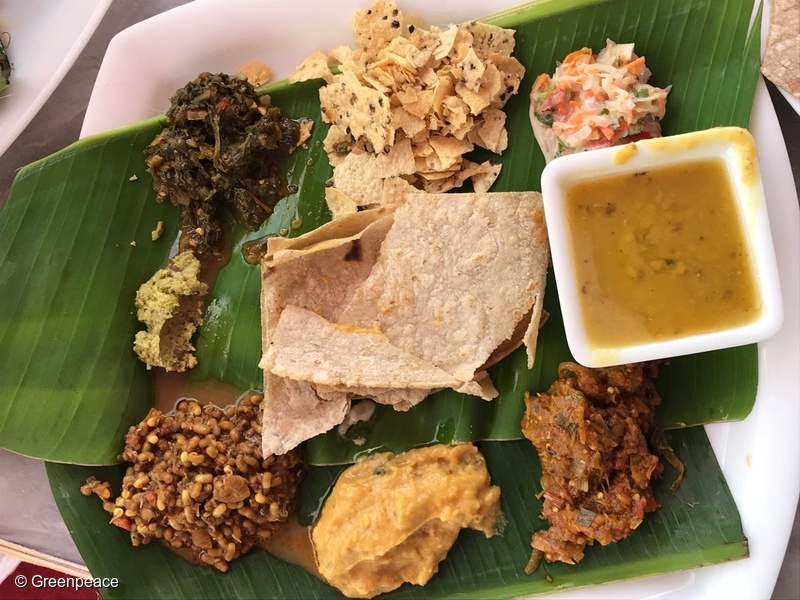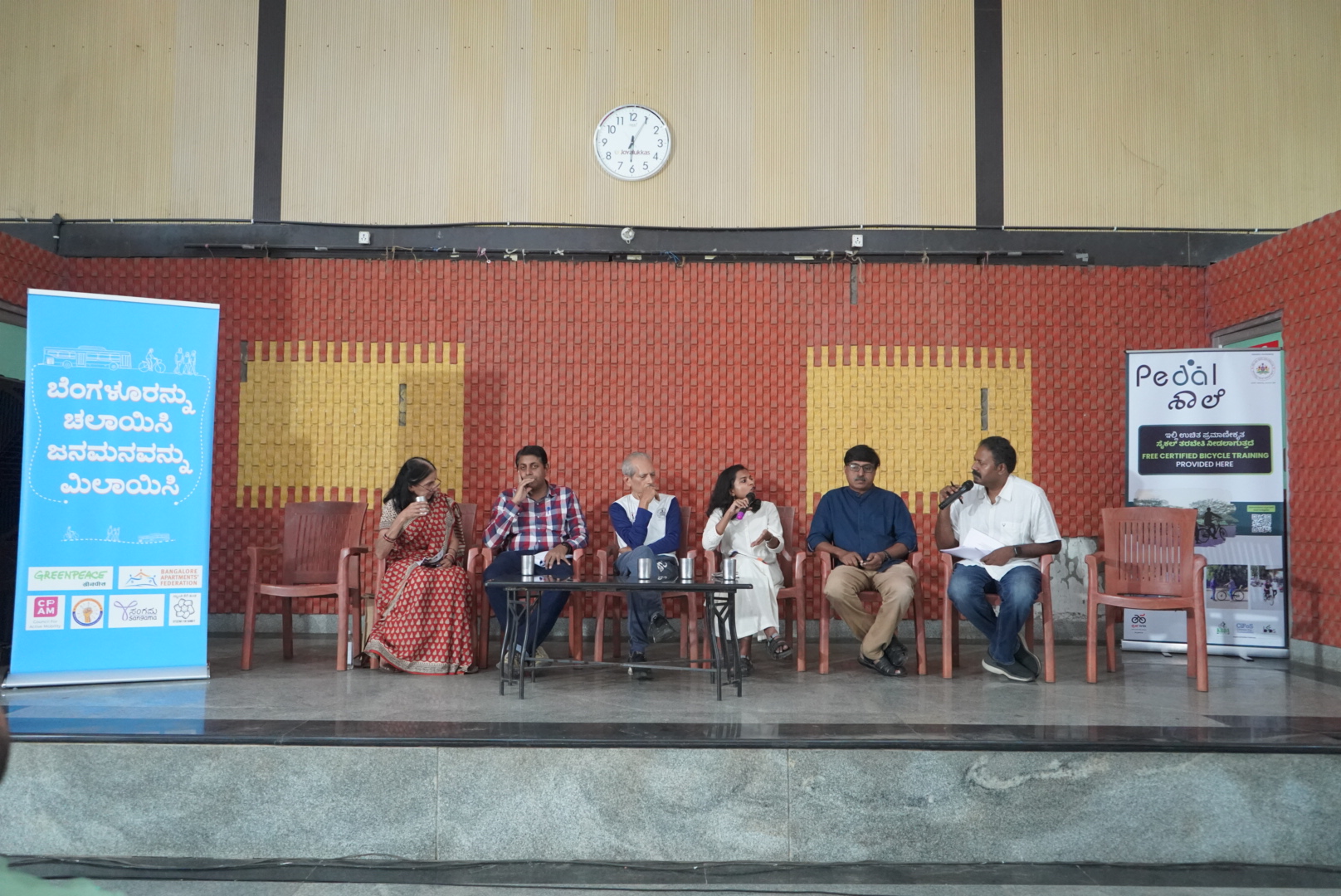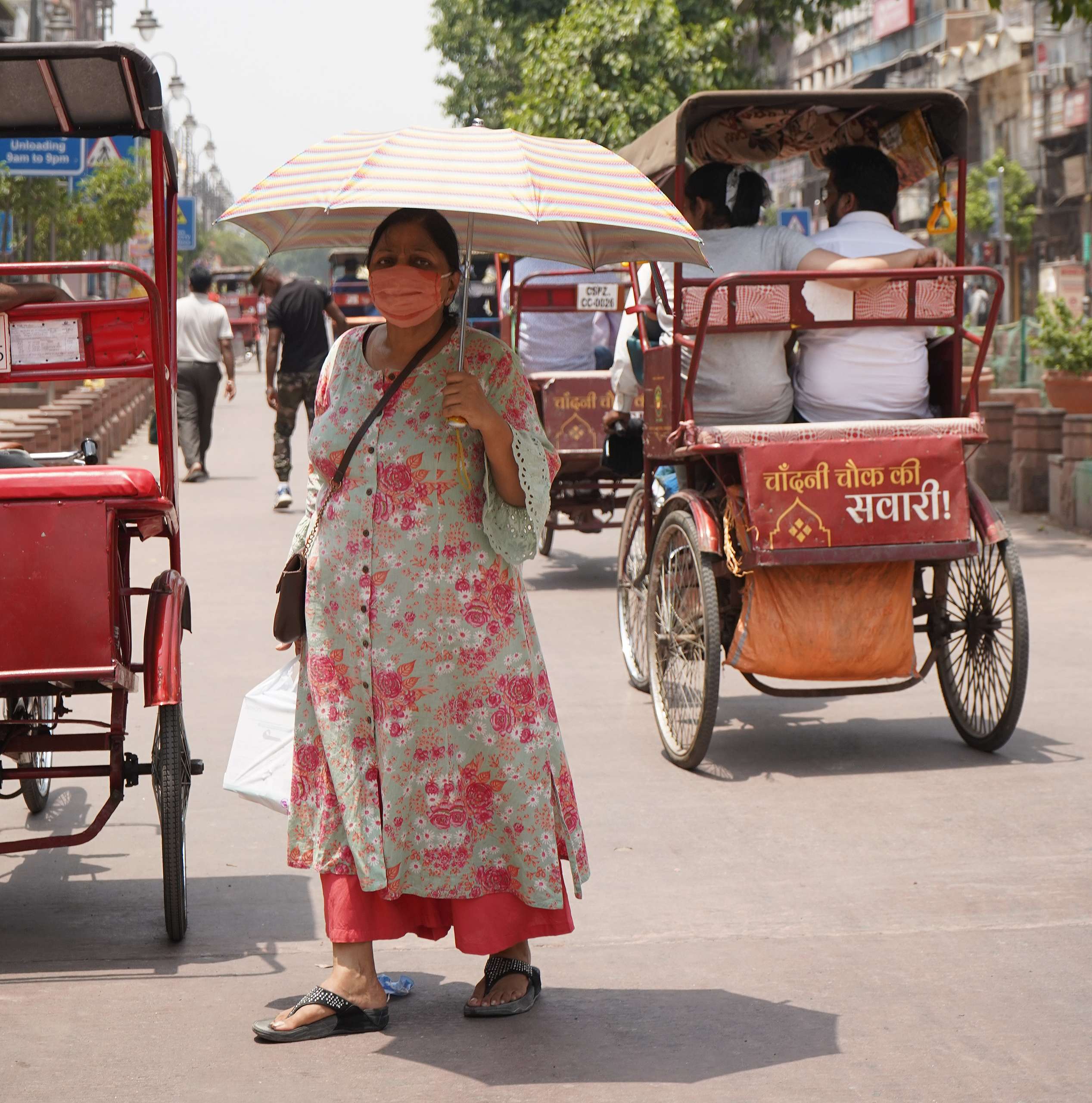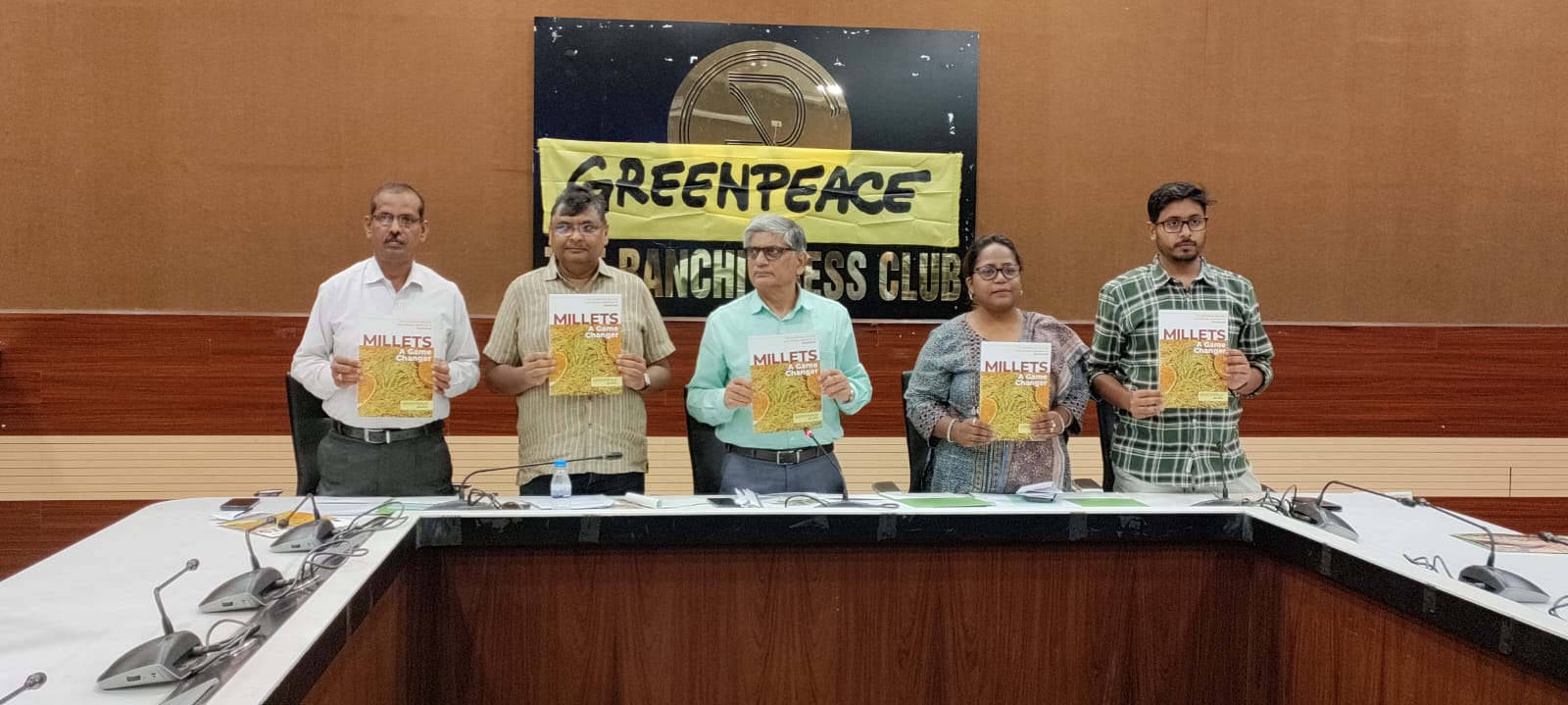
New Delhi, February 4: “Adding Diversity to Plate”, latest report by Greenpeace India, based on a series of Right to Information (RTIs) reveals lack of significant information that could validate the need of a policy such as Rice Fortification in India. The Government of India, to tackle the problem of nutritional deficiency in India, plans to introduce fortified rice through Public Distribution Systems (PDS) and Integrated Child Development Schemes (ICDS) to Mid-Day Meals (MDMs). The nationwide policy on fortification is expected to be implemented by 2024.
The Ministry of Consumer Affairs, Food and Public Distribution could not provide any specific survey or data when asked the basis for the pilot project of rice fortification. The Ministry mentioned that the National Family Health Survey- 4 (NFHS-4) survey was taken into consideration for approving the Centrally Sponsored Pilot Scheme on ‘Fortification of Rice and its Distribution under Public Distribution System’ for a period of 3 years beginning in 2019-20. It maintained, “Third-party evaluation of the ongoing pilot scheme is due in the third year i.e. in 2021-2022.”
“The fortification project is not formulated from a sound medical science point of view. Anaemia is caused by multiple deficiencies such as iron, Vitamin C, B6, B12, folic acid, Cu. and Mg to name a few. Any one food item cannot provide all nutrients in adequate amounts. Solutions to anemia, hunger and malnutrition can only be resolved by introducing diverse foods like several cereals, pulses, fruits, vegetables and even animal foods into the diet rather than looking for a one bullet solution like fortification,” said Dr Veena Shatrugna, Former Deputy Director of the National Institute of Nutrition.
Another RTI response from Indian Council of Medical Research, National Institute of Nutrition (ICMR-NIN) if they had conducted any study to estimate the wholesome impact of the chemically fortified food on the health of people with special focus to pregnant mother, feeding mothers, under five year children, undernourished and malnourished children. ICMR, in the response mentioned that they’ve not conducted any study to ascertain the impact of chemically fortified food.
Interestingly ICMR said that it did conduct a double blind randomized controlled study in government primary school children (5-11 year age group) on chemically fortified rice served as part of their mid day meal. But their findings showed, “iron fortified rice has a similar effect as mid-day meal on improvement in anemia,” which clearly raises doubts on the government’s assumptions that fortified rice could be helpful in eradicating anaemia, that also means if mid-day meal schemes are improvised, added with diversity and effectively implemented can itself be a boost in fight against malnutrition and anemia.
Whereas, Food Safety and Standards Authority of India (FSSAI), said, the Food Safety and Standards (Fortification of Foods) Regulations, 2018 are “voluntary” and based on the scientific evidence examined by the Scientific Panel, endorsed by the Scientific Committee and approved by the Food Authority, which again is opposed to the present idea of ‘mandatory’ food fortification.
“It is an established fact now that climate-induced extreme weather events are adversely impacting agriculture in the country. It is having a cascading effect on the purchasing capacity of farmers, food availability and rising food prices, and ultimately resulting in a bigger food and nutritional crisis, hence, the government must be prioritising diversity of indegenous crops that does not harm health and biodiversity and also protects the interests of farmers,” said Ishteyaque Ahmed, Senior Food For Future Campaigner, Greenpeace India.
Link to the Report:
https://www.greenpeace.org/india/en/publication/13005/rice-fortification-report/
For further information:
Rohin Kumar
[email protected]
+91-9013971997
Nischita Verrendra
[email protected]



